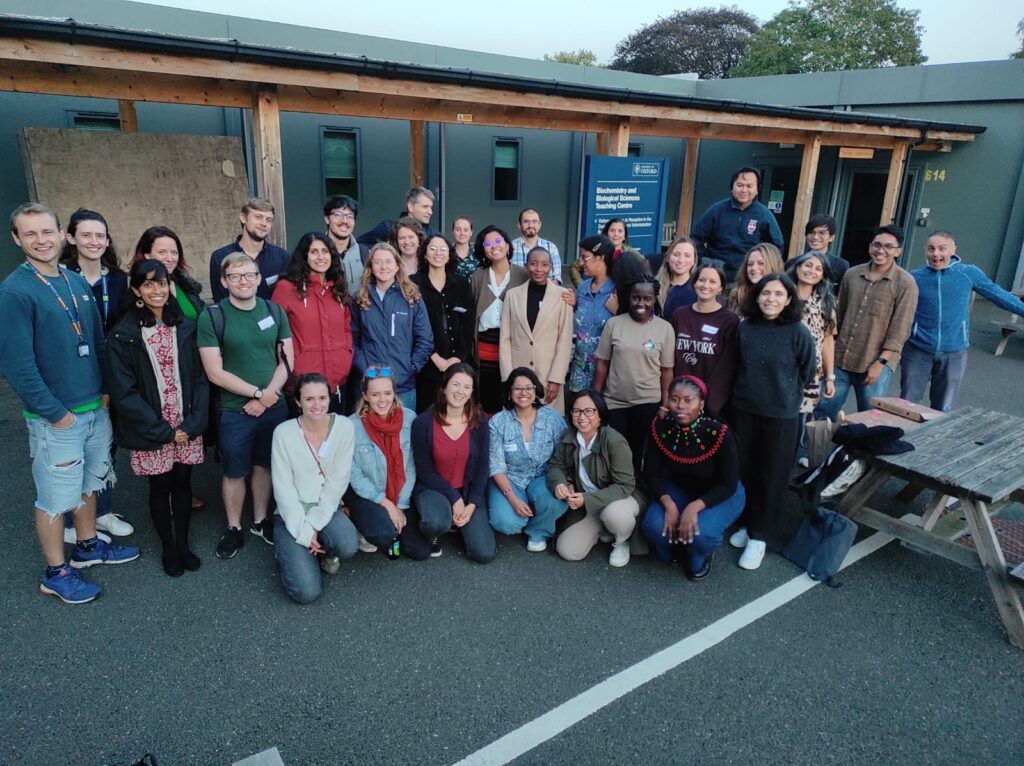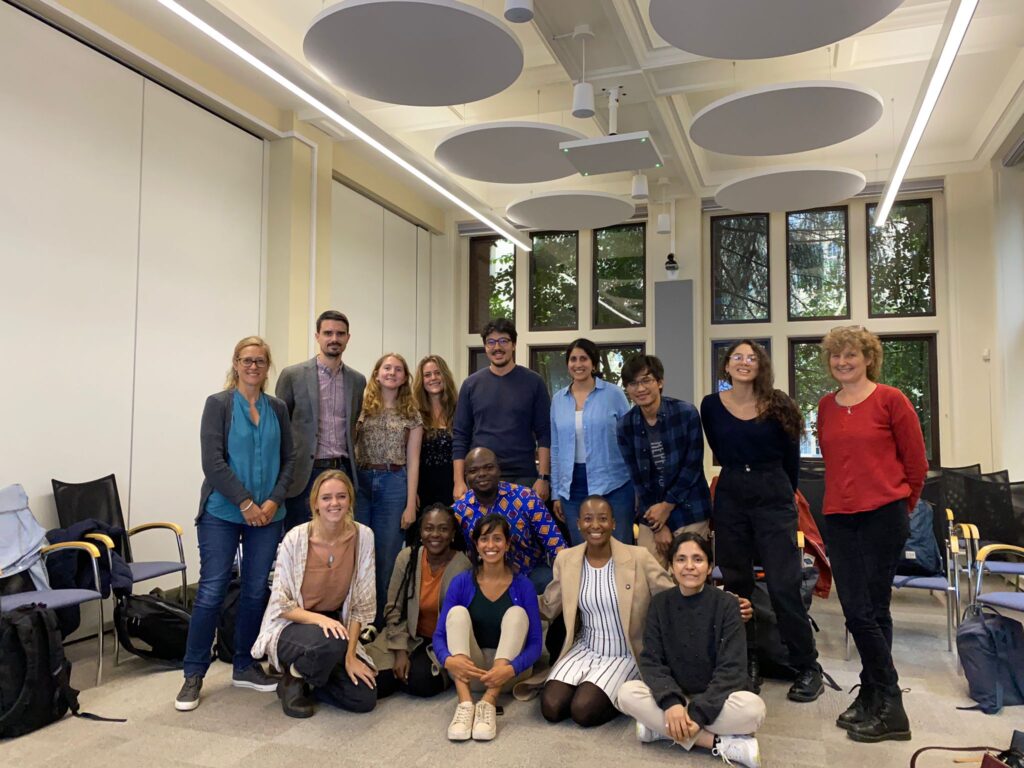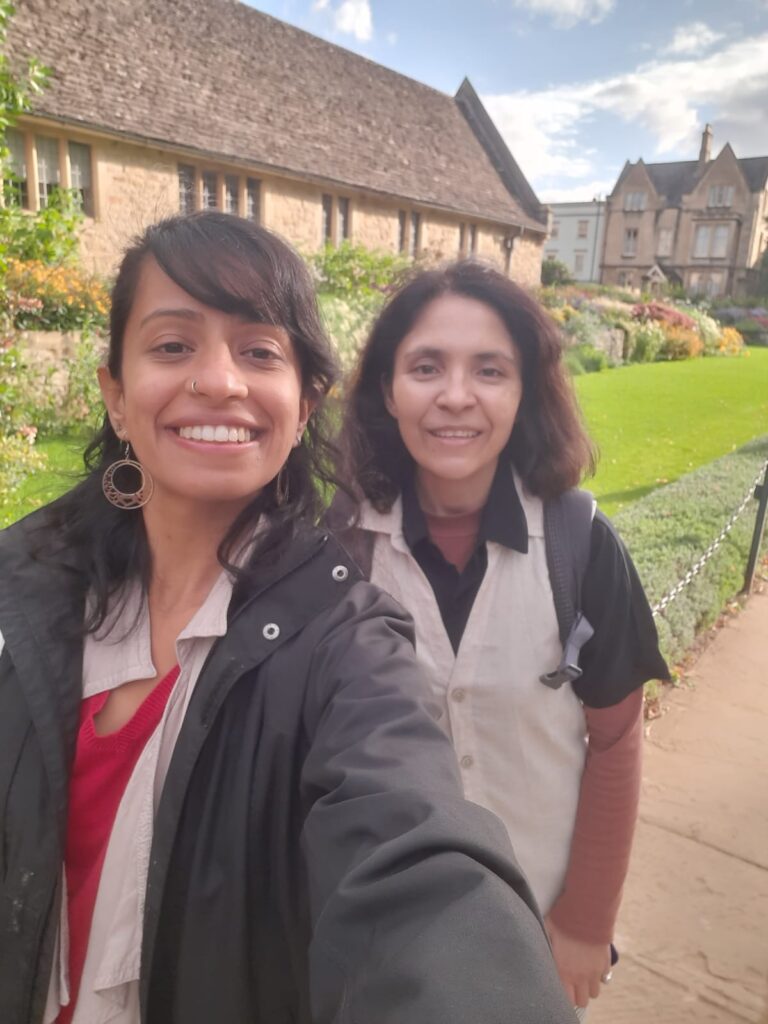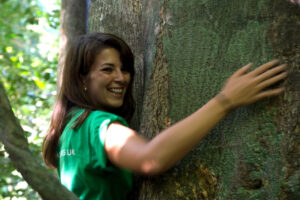University of Oxford
11a Mansfield Rd
OX1 3SZ
UK

By Reshu Bashyal
“There is nothing better than a cohort coming from across the world and working collaboratively to solve our planet’s most pressing issues…” These words by Prof. EJ, constantly echo as I sit on my desk, back home. I am filled with profound gratitude for my time at Oxford. It was an absolute privilege to engage with around 40 individuals hailing from diverse regions and fields of expertise, all bound by a shared dedication to conservation.
Interdisciplinary Conservation Network (ICN) is a workshop led by early career researchers (ECRs) that aims to bring other ECRs from around the world to develop a collaborative research under different themes, each theme mentored by 1-3 experts. This year’s themes include: 1) Legality in the wildlife trade, 2) Qualitative impact evaluation in conservation, and 3) A manifesto for African-led conservation research.
In early February, I received an email from Trisha, a PhD student at ICCS, who was in the midst of organizing the ICN workshop with Tim and Will, members of ICCS. I was drawn to the idea of forming an interdisciplinary team to unravel uncertainties in legality and sustainability of wildlife trade (this is in particular to our theme). After nearly eight months of this collaboration, I feel it a privilege to work with Trisha, as well as our mentors EJ Milner Gulland, Dan Challender, and Thomasina Oldfield, along with fellow ECRs in our theme. I have also had the opportunity to connect with other thematic leaders, their mentors, and fellow ECRs. This journey thus far has been immensely fruitful, offering opportunities for leadership, learning, and extensive networking

For me, ICN is a process of collaborative learning involving a series of stages. During the preparation phase, the meeting with the organizing team (Tim, Will, Trisha, Lucy, Lena, Nomusa) helped me to learn bits and pieces of remote workshop management. I was often in awe listening to others, about their skills and observing how effectively we utilized the hour-long meeting time, every week ensuring it gets in “Loop”. Within our theme too, we organized several pre-Oxford ICN meetings from early June, invited guest lectures, mentoring – well I don’t mean to brag, but we ended up calling ourselves “ the best team ever!” The most anticipated part was the workshop held at Oxford Martin Programme building from the 18-20 September.
The Oxford programme formally commenced on September 18th with Tim’s welcome speech. As its members, it also had “diverse” activities targeted to ECRs including guest lectures, skill oriented workshops, and ample brainstorming sessions (e.g., positive communication, MEL, fundraising, conservation careers, making diverse voices heard). Additionally, there was also a panel discussion on integrating research into conservation decision-making. I thoroughly enjoyed participating in and learning from all these enriching events. In addition to the management and leadership aspects, ICN has encouraged me to think outside of the box, especially in terms of conceptualizing wildlife trade and issues surrounding it.
As much there is a buzz about wildlife trade, there is hardly any conversation around the issues of uncertainties in legality and sustainability and how this has impacted the species. At our thematic session, most of our discussion revolved around this, making me ponder more. Prior to my involvement with ICN, I used to believe that wildlife trade issues are significantly different across the world, but that was not the case. We often found ourselves engrossed in discussions about how this stereotypical view of wildlife trade, envisioning it merely as wild animals harvested in a remote village of a developing country, often illegally “to sell to China”, needs to be addressed. I come from a place where wildlife is used on a daily basis, from medicinal plants and animals, bushmeat, to edible fungi, insects, birds, and more. Sometimes, non-edible wildlife is inadvertently consumed (for example, poisonous mushrooms in lack of awareness and identification uncertainties), resulting in casualties every year. Yet, when we talk about “wildlife trade” the first assumption is about its illegality.
My work primarily focuses on plant trade, allowing me to interact with trade actors along the entire supply chain. I have always been puzzled by the lack of conversations regarding how to shift the narrative towards a more legal and sustainable approach to wildlife trade. Initiating such conversations, particularly for species that can be managed in a sustainable and legal manner, is crucial. The workshop provided a platform for me to delve into similar issues faced by fellow conservationists from different regions. We not only shared a common passion for conservation but also confronted comparable circumstances, challenges, and opportunities simultaneously. A perfect reflection of “I am not alone”!
As of now, we are examining various dimensions of uncertainty around the legality of wildlife trade. This includes uncertainties in institutional setup, practical uncertainties (in the mixing of legal and illegal trade chains), and perception uncertainties (based on how the policies can be interpreted). We are also covering several case studies to underscore these uncertainties. As we progress, there is always learning and evolving – Let’s see where this lands.
There are so many things I wish to cover in this blog and keep writing about this incredible collaborative programme. I’d like to conclude by whispering a story of hope – of recovery of the plummeting numbers of the weird and wonderful saiga antelope, worked on by an interdisciplinary team – that I heard while sitting among fellow ECRs during the address by Prof. Dame E.J. Milner-Gulland at ICN. Through this experience, I have come to appreciate the immense potential that lies in such interdisciplinary collaborations and aim to apply this learning in my work, hopefully.
I am thankful to ZSL EDGE and ICN for supporting my participation. Also, my sincere thanks to Amy Hinsley for recommending me to the ICN program.
Reshu Bashyal, Research Fellow of Greenhood Nepal.


